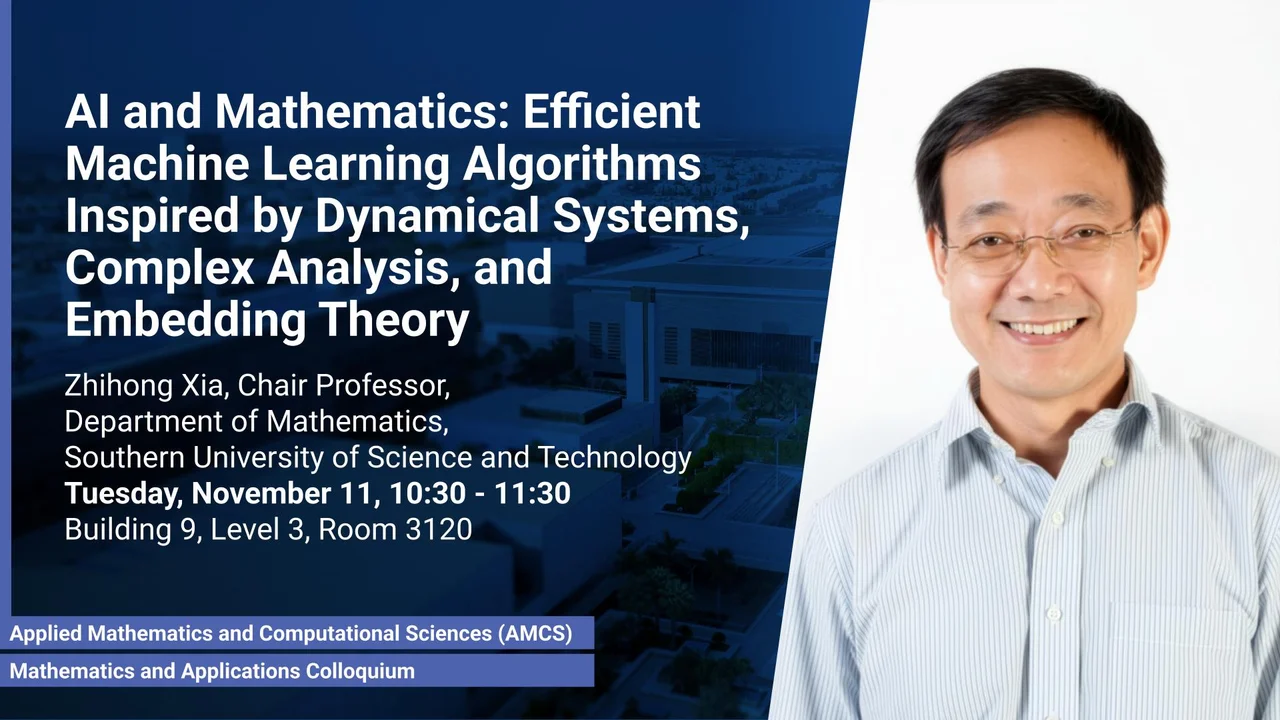
AI and Mathematics: Efficient Machine Learning Algorithms Inspired by Dynamical Systems, Complex Analysis, and Embedding Theory
This talk describes a novel machine learning algorithm, inspired by complex analysis and dynamical systems theory, that significantly improves efficiency in solving partial differential equations and scientific computing, while providing a theoretical framework for reconstructing complex, unknown systems from partial observational data.
Overview
AI and machine learning algorithms represent our mathematical communication with computers. Current algorithms are the product of iterative trial and error. In our work, we propose novel machine learning algorithms derived from and inspired by pure mathematics.
First, our machine learning algorithm based on complex analysis are highly efficient in solving both mathematical and physical problems, surpassing existing Physical Informed Neural Networks (PINNs), for solving Partial Differential Equations (PDEs) and other scientific computations, achieving improvements in both speed and accuracy often by several orders of magnitude. It also shows strong performance in tasks like image recognition and generations, some large language models and other AI applications.
Inspired by dynamical systems theory and Whitney embedding, we have also created machine learning algorithms for time series predictions. The algorithms address the following fundamental question: given a complicated system, of which we have no physical understanding, can we learn and reconstruct the system from partial observational data sequence? It turns out that the answer is affirmative from our theory.
Presenters
Zhihong Xia, Chair Professor, Department of Mathematics, Southern University of Science and Technology
Brief Biography
Zhihong Jeff Xia received his PhD from Northwestern University in 1988. He held a Benjamin Pierce Lecturer and Assistant Professorship at Harvard University, and a tenured faculty position at the Georgia Institute of Technology before joining Northwestern University as a professor of mathematics in 1994. In 2000, Xia was appointed the Arthur and Gladys Pancoe Professor of Mathematics at Northwestern. He joined the Great Bay University in 2024.Xia’s field of research is Dynamical Systems, Solar system dynamics and Machine learning algorithms. He solved the century old Painleve conjecture in mathematics; discovered (jointly with Jian Li) that a large planet from outside of the solar system once flew by our solar system a few hundreds of million years ago; He also created an efficient machine learning algorithm.Xia was named an Alfred P. Sloan Fellow in 1989. He was awarded the Blumenthal Award for advancement of pure mathematics (1993), he was awarded the Monroe H. Martin Prize in applied mathematics (1995). He was NSF’s National Young Investigator. He was invited to speak at the 1998 International Congress of Mathematicians.